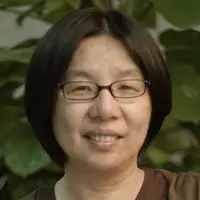 Alan Oppenheim
Alan OppenheimFord Professor of Engineering, Electrical Engineering and Computer Science (EECS), MIT. Sc.D. - MIT.
 Hamid Jafarkhani
Hamid JafarkhaniChancellor’s Professor, Electrical Engineering and Computer Science, University of California, Irvine. Ph.D. - University of Maryland at College Park.
 Thomas Kailath
Thomas KailathHitachi America Emeritus Professor of Engineering, Department of Electrical Engineering at Stanford University. Sc.D. - MIT.
 Whitfield Diffie
Whitfield DiffieVisiting professor, Zhejiang University, China, and member of the technical advisory boards of BlackRidge Technology, and Cryptomathic.
 Carlo Tomasi
Carlo TomasiThe Iris Einheuser Professor of Computer Science, Duke University. Ph.D. - Carnegie Mellon University.
 Peter Stoica
Peter StoicaProfessor of Systems Modeling at Uppsala University, Ph.D. - Polytechnic Institute of Bucharest, Romania.
 Muriel Medard
Muriel MedardCecil H. Green Professor in the Electrical Engineering and Computer Science (EECS) Department at MIT. Sc.D. MIT.
Note: the following books are not recommended by Professor Medard. They are books that have been used as reference texts in one/some courses she has taught.
 Robert Gallager
Robert GallagerProfessor Emeritus of Electrical Engineering and Computer Science at MIT. Sc.D. - MIT.
Note: the following books are not recommended by Professor Gallager. They are books that have been used as reference texts in one/some courses he has taught.
 Bin Yu
Bin YuChancellor’s Distinguished Professor and Class of 1936 Second Chair Departments of Statistics and Electrical Engineering and Computer Sciences at UC Berkeley. Ph.D. - UC Berkeley.
Note: the following books are not recommended by Professor Yu. They are books that have been used as reference texts in one/some courses she has taught.
 Alan Willsky
Alan WillskyEdwin Sibley Webster Professor of Electrical Engineering (Retired) Massachusetts Institute of Technology. Ph.D. MIT.
Note: the following books are not recommended by Professor Willsky. They are books that have been used as reference texts in one/some courses he has taught.
 Dieter Fox
Dieter FoxProfessor in the Department of Computer Science & Engineering at the University of Washington, Ph.D. - University of Bonn.
Note: the following books are not recommended by Professor Fox. They are books that have been used as reference texts in one/some courses he has taught.
 David Tse
David TseThomas Kailath and Guanghan Xu Professor in the School of Engineering Department of Electrical Engineering, Stanford University, Ph.D. - MIT.
Note: the following books are not recommended by Professor Tse. They are books that have been used as reference texts in one/some courses he has taught.
 Jurgen Schmidhuber
Jurgen SchmidhuberScientific director of the Dalle Molle Institute for Artificial Intelligence (IDSIA) Research in Lugano, in Ticino in southern Switzerland, and Professor of Artificial Intelligence (Ordinarius) at the Faculty of Computer Science at the University of Lugano., Ph.D. - Technical University of Munich.
Note: the following books are not recommended by Professor Schmidhuber. They are books that have been used as reference texts in one/some courses he has taught.
Math plays a crucial role in electrical engineering and computer science. From circuit analysis to signal processing, mathematical concepts and techniques are used to design, analyze, and troubleshoot a wide range of electrical systems.
In electrical engineering, mathematical modeling is used to analyze and design electronic circuits. This includes using calculus to analyze circuit dynamics and linear algebra to analyze circuit behavior. Engineers also use differential equations to model the behavior of circuits over time.
In computer science, mathematical concepts are used in the design and analysis of algorithms. For example, graph theory is used to analyze network structures, while linear algebra is used in computer graphics and image processing.
In the field of communications engineering, mathematical techniques such as Fourier analysis and probability theory are used to analyze and design communication systems. This includes analyzing the behavior of signals in a communication channel and designing error-correcting codes to improve the reliability of data transmission.
In the field of control systems, mathematical concepts such as linear systems theory and control theory are used to design and analyze feedback control systems. This includes using calculus to analyze system dynamics and linear algebra to design controllers.
In computer science, mathematical concepts such as discrete mathematics and number theory are used in the study of theoretical computer science. This includes analyzing the complexity of algorithms and studying the properties of computational problems.
Overall, math is a fundamental tool used in electrical engineering and computer science, providing the theoretical foundation and the tools necessary to design, analyze, and improve the performance of a wide range of systems and technologies.












